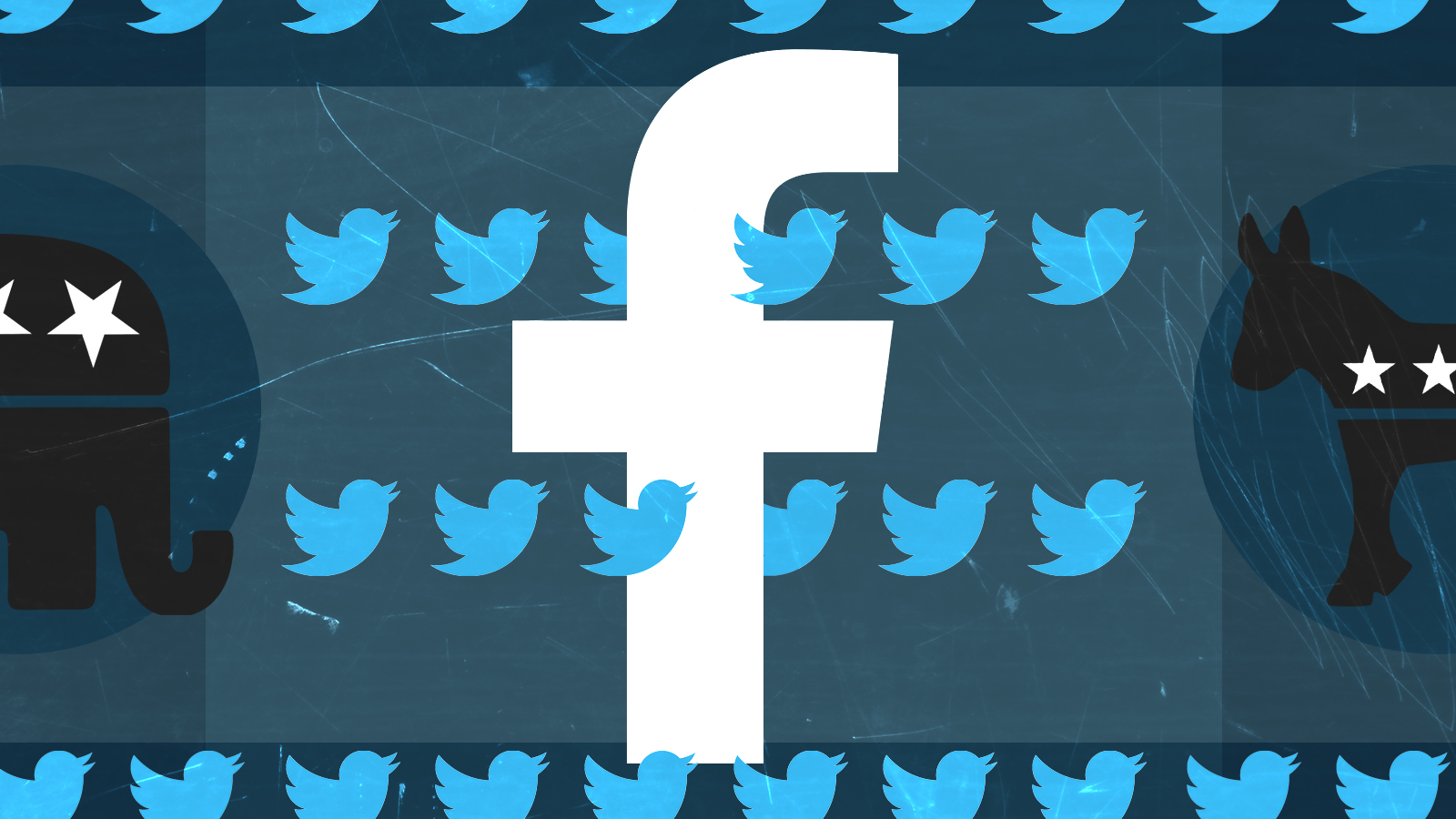A bipartisan backlash to Big Tech is still unlikely


A free daily email with the biggest news stories of the day – and the best features from TheWeek.com
You are now subscribed
Your newsletter sign-up was successful
If President Joe Biden's short-lived assertion that Facebook was "killing people" with COVID-19 disinformation hinted at it, his nomination of Jonathan Kanter to lead the antitrust division at the Justice Department drove the point home: Big Tech's political problems aren't limited to Republicans.
If confirmed, Kanter would join fellow progressive Big Tech critic Lina Khan, Biden's pick to chair the Federal Trade Commission. He is a rare nominee praised both by Sen. Elizabeth Warren, a liberal darling, and his predecessor in the Trump administration.
Big Tech is in the crosshairs of both parties. They view the companies as unaccountable, monopolistic, and harmful to consumer privacy. In theory, the political conditions exist to regulate or even break them up.
The Week
Escape your echo chamber. Get the facts behind the news, plus analysis from multiple perspectives.

Sign up for The Week's Free Newsletters
From our morning news briefing to a weekly Good News Newsletter, get the best of The Week delivered directly to your inbox.
From our morning news briefing to a weekly Good News Newsletter, get the best of The Week delivered directly to your inbox.
In practice, this could prove difficult. Top Republicans have eschewed bipartisan bills that pose a real threat to break up the social media giants in favor of legislation that would prevent them from discriminating against conservative viewpoints. The controversy over how COVID-19 is handled on Facebook is instructive: liberals want posts discouraging people from getting the vaccines to at the very least stop going viral; conservatives fear they want conservative opinions censored.
Progressives are further along than most conservatives in their thinking on economic concentration and corporate consolidation, even though there is some rethinking of antitrust law taking place on the right. Conservatives are primarily animated by how Twitter and Facebook treat their content, especially select stories at important times — Hunter Biden's laptop during the presidential campaign and Wuhan lab origins theory for the virus last year are the two most commonly cited examples — while liberals see Facebook in particular as flooded with conservative content, much of it low-brow and some of it dubious. On this, the two sides are at cross purposes and this is the issue that matters most to their grassroots supporters, not reevaluating what constitutes an antitrust violation.
That is not to say that nothing will change. If the Biden administration does move against Big Tech, it's possible many Republicans will turn a deaf ear to Facebook's complaints. Or they may look at the White House and decide the enemy of my enemy is my friend.
A free daily email with the biggest news stories of the day – and the best features from TheWeek.com
W. James Antle III is the politics editor of the Washington Examiner, the former editor of The American Conservative, and author of Devouring Freedom: Can Big Government Ever Be Stopped?.
-
 American universities are losing ground to their foreign counterparts
American universities are losing ground to their foreign counterpartsThe Explainer While Harvard is still near the top, other colleges have slipped
-
 How to navigate dating apps to find ‘the one’
How to navigate dating apps to find ‘the one’The Week Recommends Put an end to endless swiping and make real romantic connections
-
 Elon Musk’s pivot from Mars to the moon
Elon Musk’s pivot from Mars to the moonIn the Spotlight SpaceX shifts focus with IPO approaching
-
 Democrats push for ICE accountability
Democrats push for ICE accountabilityFeature U.S. citizens shot and violently detained by immigration agents testify at Capitol Hill hearing
-
 Big-time money squabbles: the conflict over California’s proposed billionaire tax
Big-time money squabbles: the conflict over California’s proposed billionaire taxTalking Points Californians worth more than $1.1 billion would pay a one-time 5% tax
-
 Will Peter Mandelson and Andrew testify to US Congress?
Will Peter Mandelson and Andrew testify to US Congress?Today's Big Question Could political pressure overcome legal obstacles and force either man to give evidence over their relationship with Jeffrey Epstein?
-
 The ‘mad king’: has Trump finally lost it?
The ‘mad king’: has Trump finally lost it?Talking Point Rambling speeches, wind turbine obsession, and an ‘unhinged’ letter to Norway’s prime minister have caused concern whether the rest of his term is ‘sustainable’
-
 Did Alex Pretti’s killing open a GOP rift on guns?
Did Alex Pretti’s killing open a GOP rift on guns?Talking Points Second Amendment groups push back on the White House narrative
-
 Rep. Ilhan Omar attacked with unknown liquid
Rep. Ilhan Omar attacked with unknown liquidSpeed Read This ‘small agitator isn’t going to intimidate me from doing my work’
-
 Washington grapples with ICE’s growing footprint — and future
Washington grapples with ICE’s growing footprint — and futureTALKING POINTS The deadly provocations of federal officers in Minnesota have put ICE back in the national spotlight
-
 Can anyone stop Donald Trump?
Can anyone stop Donald Trump?Today's Big Question US president ‘no longer cares what anybody thinks’ so how to counter his global strongman stance?
